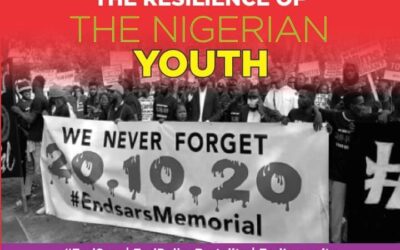Government, through the National Council of States has approved guidelines for convening the much clamoured and desired National Conference. The Conference, to be known as the “National Political Reform Conference” is to comprise a total number of 400 delegates. Excluded from the potential delegates are all elected and appointed political leaders in the current dispensation. The National Council of States has indicated that the time frame for the Conference will be three months, which will be subject to change if the President considers that it is in the best interest of the country to do so. It is expected to kick off in March 2005.
Integrally, the make-up of the Conference is that the delegates will comprise 50 persons appointed by the President ostensibly representing interest groups from each state of the Federation and other special interest groups at his absolute discretion. The other significant component of the membership will be 6 persons selected from each state, the appointments to be made by the Governors of each of those states. The rest of the membership will be made up of 6 representatives each from student bodies, Civil Liberty Organisations and Civil Societies as well as subject specific organisations such as Manufacturers Association of Nigeria, Nigerian Bar Association and those representing the Disabled.
There have been mixed reactions from within the Nigerian and international communities since the announcements were made. Those reactions are cited at opposite ends of the spectrum. Many consider that the convoking the conference does not, in fact, go far enough. They rely on germane, compelling and in some respects irresistible arguments to support this position. Others believe that it is a starting point. Many more believe that the President’s role in making the highest number of block appointments is patently flawed. Others believe that the selection process should be completely opened and certainly beyond the control of the presidency. Some believe that the presidency was pushed by the heightening clamour to constitute this conference, chiefly because it has become manifestly clear that the country’s current structure was not yielding the kind of long-term results that could be considered remotely proportional to the needs of the country. Others believed that the organised response of civil society was becoming such that the Government would have been embarrassed if civil society had successfully put together an alternative National Conference.
The call for the convocation of a National Conference with the objective or debating and repackaging Nigeria has been the subject of public consideration for the best part of the last 15 years. At its inception, few people criticised its necessity, believing, for all kinds of reasons that the inception of democracy would provide a broader basis for consultation amongst Nigerians. With the emergence of the 1999 Constitution, particularly its genesis, it became increasingly clearer that there was anything but unanimity about the guidance that it provided without prejudice to specific provisions for the areas of societal life in which it remained worryingly silenced. With passing years, the inevitability became clearer and built up a crescendo of unavoidability.
NAS has been one of the numerous organisations whose position in support of Sovereign National Conference has remained undiminished over the years. However, it is evident that there is considerable concern amongst Nigerians about the workability of such a conference. For us, for a Conference that has been the subject of sustained demand over the years, the haste with which the Conference appears to be convened is impious. Whilst NAS is pleased that consequence of the pressure that has been brought to bear on Government by all interested parties has begun to bear fruit, however imperfect the formation of that fruit now is, it is crucial that this is not to be seen as representing mere lip service to what is undoubtedly the desire by the majority for greater involvement in forging the future of the nation. Flawed as the process currently is, NAS believes that it is a starting point and one for which the presidency should be given some credit.
There are, however, some quite disturbing factors about which public suspicion needs to be laid to rest. NAS takes the view that the nomination of 50 individuals out of a possible 400 delegates by the President is excessive, inappropriate and certainly unjustifiable. Of the remainder of the delegates, the State Governors will nominate 216. Of that number, PDP Governors from 28 states will nominate 168. 6 others will be nominated by Federal Capital Territory, itself also in control of the PDP. In effect, the PDP will be responsible, directly, for the nomination of 274 out of a possible 400 delegates, leaving a balance of 126. Ab initio, the process itself is already fundamentally undermined and the transparency of the process must now be subject to serious doubts. Quite simply, the National Conference ceases, by this single feature, to be national. The exercise, in effect, loses the holistic encapsulation of both grass roots and national engagement that has represented the key attraction of a conference of this nature. In one stroke, it becomes a conference for PDP by PDP and of PDP.
There has been some discussion about the agenda of the Conference. Together with the issue of its composition, the division of views on both subjects has been responsible for the serious polarisation of Nigerians regarding the genuineness of the Conference. NAS believes that every issue touching upon the existence of Nigeria as a country and its people can and should form the subject of discussion by the Conference. The agenda of the Conference should not be curtailed in any form in order to ensure its openness and its probative value to the Nigerian populace. An approach that appears to ring-fence issues beyond the discursive framework of the Conference will undermine the exercise and should be avoided at all cost. Serious consideration ought to be given, at this incubating stage, to the effect that the decisions of the Conference would have on the formulation of operational policies and guidelines for the future. Given the potential variety nature of such a Conference, it is trite to suggest that the only inescapable conclusion must be that decisions reached by the Conference should be amenable to testing only by a national referendum.
Despite the latent deficiencies of the Conference as presently constituted, Nigerians must be encouraged to participate as fully as possible in the process. Those who are unable to find themselves in a representative capacity must articulate their positions under various issues and insist that they are brought to the attention of their respective delegates. There is some force in the argument that an alternative Conference demonstrating the way such a conference should be structured, should be organised. Others feel that the best way to register displeasure may be to stay away. The former proposal has inherent weaknesses because of, inter alia, the use to which the outcome of such a conference will be put. The latter would ensure even poorer prospects of influencing the outcome of such a conference. Those who share this view will quickly remember the situation that preceded the 1999 elections and impact of the “stay away” policy of potentially high quality candidates from the electoral process.
NAS believes that Government has, at last, answered the call for the inevitable namely, convoking a most desired conference to fashion out an acceptable road map for the future of Nigeria. The consultation and advice that informed the pronouncement of the National Council of States is not information in the public domain but it is evident that it lacked consideration of some of the identified concerns we have mentioned and many more. Clearly, insufficient attention may have been paid to some of the crucial issues representing problems that now emerge. The view of this organisation is that it is imperative that some of these identified problems to be factored into the implementation process, at this stage, and every step should be taken to address them. It may even have been a more beneficial approach to have canvassed views about the manner in which such a Conference should be set up before the pronouncement by the National Council of States. Nevertheless, there is ample opportunity now for the committee charged with the responsibility of implementing the process to receive input from Nigerians and to make recommendations for the setting up of the Conference in the manner that takes into account credible solutions to the flaws that have been identified. Our view is that unless this course is taken, the Conference may well represent a cosmetic response that will be insufficient to assuage a need that will not disappear.
Signed:
ANDREW OBINNA ONYEARU
NAS Capone
National Association of Seadogs (NAS)
28th January 2005



